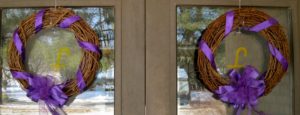Tuesday, March 7
1:30 p.m. – UIARC Conference Gathering
4:00 p.m. – Mary Circle – Lynn Sootheran hosts at the church
7:00 p.m. – White Privilege Conversation in Fellowship Hall
Wednesday, March 8
7:30 a.m. – Men’s Breakfast
10:30 a.m. – Communion at Aase Haugen
12:15 p.m. – Lenten Organ Recital – Gregory Peterson
2:00 p.m. – Miriam Circle – Carol Hasvold hosts
5:30 p.m. – Lenten Service
6:00 p.m. – Soup Supper
7:00 p.m. – Choir Rehearsal
8:00 p.m. – Band Rehearsal
Thursday, March 9
NO Bible Study during Lent
Sunday, March 12 – Second Sunday in Lent
9:30 a.m. – Worship with Holy Communion
10:30 a.m. – Fellowship Hour – Coffee Sale
10:45 a.m. – Adult Forum – Medieval Liturgical Drama for Easter Sunday
10:45 a.m. – Sunday School





